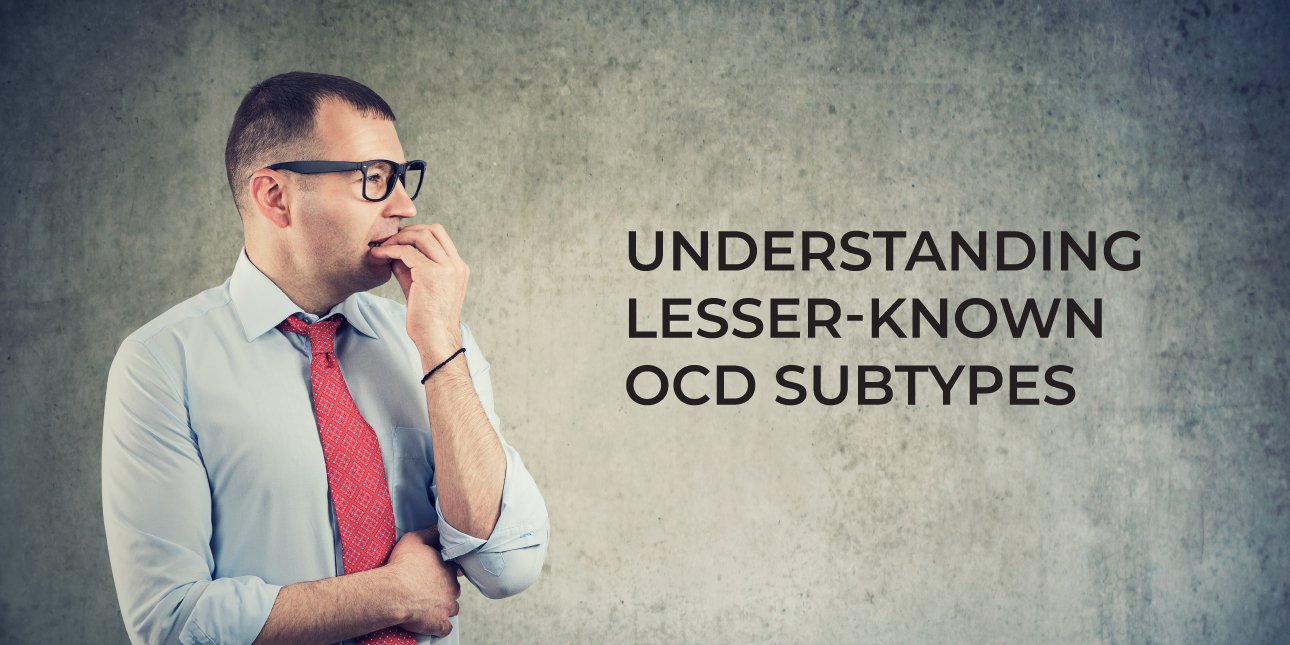Understanding Lesser-Known OCD Subtypes

Understanding Lesser-Known OCD Subtypes
When most people think of OCD, they picture someone washing their hands repeatedly or organizing a bookshelf in a specific order. While these can be manifestations of Obsessive-Compulsive Disorder, this common stereotype hides a much more complex and often hidden reality.
The truth is, OCD is a chameleon. It can attach itself to anything a person values most—their relationships, their sense of self, their morality, or their safety. The core of OCD isn't about cleanliness; it's about unwanted, intrusive thoughts that cause intense anxiety (obsessions) and the mental or physical rituals performed to neutralize that fear (compulsions).
When these struggles happen in the quiet of the mind, without visible compulsions, sufferers often feel alone, confused, and too ashamed to seek help. They think, "My problem doesn't look like 'typical OCD,' so what's wrong with me?"
Let's pull back the curtain on some of these lesser-known subtypes.
The Silent Battles: When OCD Hides in Plain Sight
1. Relationship OCD (ROCD): The Endless "What If?"
- The Hidden Obsession: Constant, gnawing doubt about one's relationship. Thoughts like, "Do I really love my partner?" "Is this the right person?" or hyper-focusing on a perceived flaw in their partner.
- The Exhausting Compulsion: Endlessly analyzing their feelings, comparing their relationship to others', seeking reassurance from friends, or mentally replaying interactions to find "proof" of their love. It's not about indecision; it's about a deep-seated fear of making a terrible mistake and causing immense pain.
2. Harm OCD: The Fear of Being a Danger
- The Hidden Obsession: Sudden, violent, and shocking mental images of harming a loved one or oneself. These thoughts are ego-dystonic, meaning they are the complete opposite of the person's true character and cause immense horror.
- The Exhausting Compulsion: Avoiding kitchens (because of knives), hiding sharp objects, constantly checking on loved ones to ensure they're safe, or repeating a "safe" word in their head to cancel out the thought. The person isn't dangerous; they are terrified of becoming dangerous.
3. Existential OCD: Trapped in Unanswerable Questions
- The Hidden Obsession: Getting stuck in a loop of philosophical questions that have no answer. "What is real?" "How do I know I truly exist?" "What is the point of life?" These aren't intellectual curiosities; they are sources of deep anxiety and a feeling of detachment from reality.
- The Exhausting Compulsion: Spending hours reading philosophy, writing down thoughts to find a definitive answer, or seeking constant reassurance from others about the nature of reality. It's a search for a certainty that can never be found.
4. Sensorimotor OCD: When You Can't Stop Noticing
- The Hidden Obsession: Becoming hyper-aware of an automatic bodily process, like swallowing, blinking, or breathing.
- The Exhausting Compulsion: Focusing intense attention on the sensation, fearing that once you notice it, you'll never unnotice it. This can make simple, automatic actions feel manual and exhausting, leading to significant social anxiety and difficulties with a Stress Management.
You Are Not Broken, You Are Having a Recognizable Reaction
If you see yourself in any of these descriptions, the most important thing to know is this: You are not alone, and you are not "unwise". These are recognized subtypes of OCD. The content of the thought is different, but the underlying mechanism—the OCD cycle—is the same. The shame and confusion you feel are symptoms of the disorder, not a reflection of your character. Seeking professional Psychological Advice is a crucial step toward understanding this.
There Is a Way Out of the Loop
The good news is that these forms of OCD, like all forms, are highly treatable. The gold-standard treatment, Exposure and Response Prevention (ERP) therapy, helps you learn to tolerate the anxiety of an intrusive thought without engaging in the compulsion that fuels it. Over time, the thoughts lose their power, and you can reclaim your mental energy and peace. This process is a core part of effective Counseling for OCD.
Let You & Me Help You Find Your Way Back
At You & Me Counselling and Personality Development Centre, we understand that OCD wears many masks. Led by Dr. Veerender Chennoju, and his team of experts, including a qualified health counsellor, provides a compassionate, safe space to untangle these complex thoughts and behaviours. We offer specialized Counseling and support for Stress Management to help you break the cycle.
You don't have to live in a private world of anxiety and shame. Help is available, and recovery is possible. Take the first step by seeking our professional Psychological Advice.
